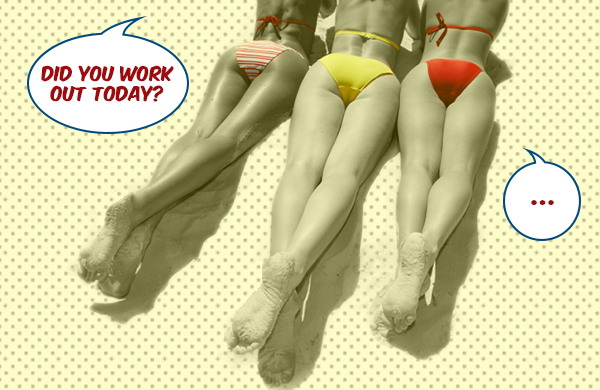
Liposuction and other fat-reduction procedures get a bad rap. There’s a preconceived notion that these popular treatments are a substitute for exercising and eating healthy. In reality, liposuction and its fellows aren’t a panacea for obesity—they just target localized pockets of fat, even out proportions, and contour the body.
If you’re thinking about such a procedure, though, you might have some questions about what happens afterward. Is working out after liposuction even necessary? Does it make the results last longer or look better? We talked to two experts to find out.
Do liposuction and related treatments work if you don’t exercise?
The short answer is yes, according to Dr. Kristine Brecht of Aesthetic Rejuvenation and Total Med Solutions owner George Thompson. But how do they work?
During liposuction, doctors make incisions and generally use suction to remove fat cells from localized body areas, like the thighs, hips, tummy, upper arms, and chin. So whether you exercise or not, fat is definitely disappearing from your body. Basically, you just have to be in reasonable good health to undergo the procedure, especially if it’s performed under general or local anesthesia. (Consult with a physician to determine whether you qualify.)
Noninvasive fat-reduction procedures don’t require any incisions. In i-Lipo, for instance, pads equipped with laser diodes are placed on the targeted area. The laser energy penetrates through the skin and into the fat cells, perforating their membranes. The cells release their contents and shrink. Again, the volume of fat in each area likely decreases regardless of exercise. And since there’s no cosmetic surgery involved, pretty much anyone qualifies.
And what if I do work out afterward?
You’re probably setting yourself up for better results.
“If you want the result to be maintained and enhanced, a good diet and exercise will make you look and feel even better,” said Dr. Brecht, who performs liposuction. “I do complimentary diet and lifestyle counseling after a patient’s surgery to help them” prolong the effects.
Though liposuction eliminates fat from some parts of the body, it doesn’t stop you from gaining fat elsewhere. In fact, the treatment can cause other areas to overcompensate for the loss by packing on fat. A sedentary lifestyle won’t help you keep it off, so regular exercise and healthy diet are key. (Remember that liposuction is surgery, so you’ll have to wait a while to return to vigorous activity.)
Meanwhile, for noninvasive i-Lipo, providers actually recommend working out afterward. “i-Lipo is a little more effective if you do 30 minutes of light exercise within a few hours after the treatment to help flush out the fat that has been released by the laser,” Thompson said.
Since i-Lipo excises the contents of the cells rather than the cells themselves, the body needs to metabolize them before they’re stored by other fat cells. You can accomplish that metabolism with post-treatment exercise. The treated fat cells are also capable of storing fat again, so working out regularly can help prevent that.
Many patients opt for such treatments because they can’t seem to make certain fat deposits go away even with a very active lifestyle. After liposuction and i-Lipo, you may feel even more encouraged to exercise and maintain your new shape.
Illustration by Kelly MacDowell, Groupon








